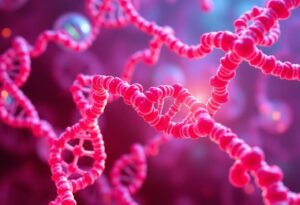In recent years, biotechnology has emerged as a transformative force in the field of organ transplantation, offering innovative solutions to the challenges faced by patients and medical professionals alike. By harnessing cutting-edge techniques, researchers are not only improving the success rates of transplants but also addressing the growing shortage of donor organs.
Advancements in Bioengineering for Organ Creation
One of the most significant breakthroughs in organ transplantation is the advancement in bioengineering, which allows for the creation of synthetic organs. With the use of biocompatible materials and 3D printing, scientists can now produce organs that closely mimic natural tissues. This innovation reduces the dependency on human donors and allows for tailored solutions to meet individual patient needs. In addition, the integration of stem cell technology has opened up new avenues in organ regeneration, significantly enhancing the field of regenerative medicine.
The Role of Genetic Engineering in Tissue Compatibility
Genetic engineering plays a crucial role in increasing tissue compatibility during organ transplants. By modifying the genes of potential donor organs, researchers can minimize the risk of rejection and enhance the likelihood of successful integration within the patient’s body. This innovative approach requires a deep understanding of immunology and genetics, paving the way for personalized medicine and targeted therapies that can offer patients a new lease on life.
CRISPR Technology Revolutionizing Transplant Processes
The introduction of CRISPR technology into organ transplantation is revolutionizing how we approach genetic modification. This powerful tool allows for precise alterations in DNA, enabling the modification of organ donor genes to better match recipient profiles. Its applications in organ transplantation are vast, ranging from altering donor organs for improved acceptance rates to potentially eradicating genetic diseases before transplantation. The continued research into CRISPR’s capabilities represents a significant step forward in ensuring that transplant surgeries result in long-term successes for patients.
Bioinformatics for Optimizing Organ Transplant Matching
Bioinformatics is emerging as a critical component in optimizing organ transplant matching processes. By utilizing large datasets and sophisticated algorithms, researchers can analyze genetic information and predict compatibility between donors and recipients more accurately. This innovation helps streamline the transplant process and ensure that the best possible matches are made, significantly improving patient outcomes. As the technology evolves, its impact on reducing waiting times and increasing the efficiency of organ allocation systems cannot be overstated.
The Impact of Innovations on Waiting Lists
The constant innovations in biotechnology are having a profound impact on organ transplant waiting lists. With the introduction of synthetic and bioengineered organs, the shortage of available donor organs is slowly being alleviated. This progress is vital in reducing the waiting times for patients desperate for life-saving transplants. Furthermore, as more advances arise in the field, the possibility of one day eradicating transplant waiting lists becomes increasingly tangible, transforming the lives of many individuals awaiting donors.
Future Perspectives: The Next Decade of Transplant Innovation
The next decade promises to be a revolutionary period for organ transplantation, driven by biotechnology. Researchers are actively exploring new horizons, such as integrating artificial intelligence in predictive analytics for transplant success rates and employing nanotechnology to enhance the longevity of transplanted organs. As these innovations continue to evolve, the healthcare landscape will likely undergo significant transformation, offering hope to millions who rely on organ transplants for survival.
Disclaimer: The information provided in this article is for informational purposes only and does not constitute medical advice. Always consult a healthcare professional for medical concerns.





















